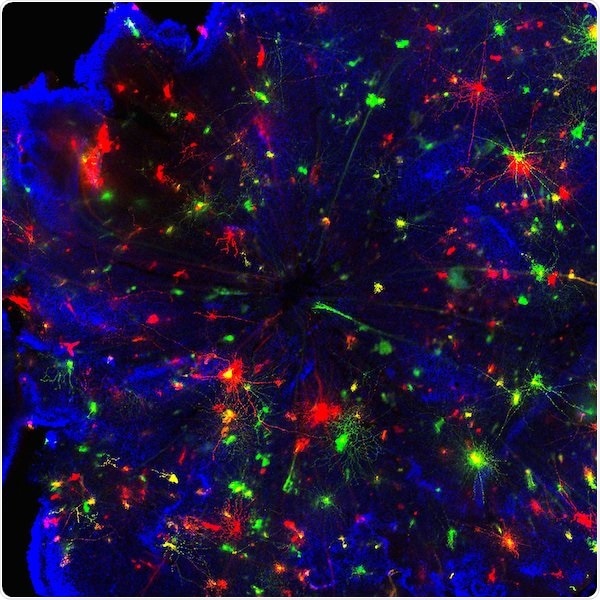Researchers funded by Fight for Sight, in partnership with The Spectacle Makers’ Charity and Glaucoma UK, are investigating if a naturally occurring protein in the body can be used to prevent sight loss from glaucoma.

Image Credit: Fight for Sight
The study, taking place at Cardiff University, is exploring if a neuroprotective agent called Brain-Derived Neurotrophic Factor (BDNF) can be released in a controlled way from the blood when stimulated with an ultrasound as a targeted treatment for glaucoma.
There are 500,000 people in the UK with glaucoma, and it is the second leading cause of blindness in the world. Glaucoma is characterized by the loss of retinal ganglion cells (RGCs) and leads to irreversible sight loss. RGCs are located near the inner surface of the retina and are responsible for sending messages to the brain, allowing us to see. A key area of glaucoma research therefore is exploring how to preserve these RGCs and prevent further sight loss.
Brain-Derived Neurotrophic Factor (BDNF), which occurs naturally in blood platelets, has already been shown to have protective effects on RGCs as well as many other types of nerve cells. However BDNF is difficult to deliver to the correct cells and its beneficial effects appear to be reduced over time and so new ways to control dosage and delivery are needed.
Glaucoma is linked to high eye pressure and so current treatments for the condition are aimed at the reduction of this pressure. However, many patients continue to lose sight despite effective pressure control highlighting a pressing need to find additional treatments. We want to to take the benefits of BDNF seen in prior work closer to a viable clinical treatment by addressing several of the difficulties in delivery and dose control. As ultrasound equipment is already widely used in eye clinics, if our experiment is successful, this would ensure a quick, safe and cost effective route to delivering this treatment in the clinics.”
Dr Andrew Want, Research leader, Cardiff University
Interim Chief Executive at Fight for Sight, Ikram Dahman, said: “We’re delighted to partner with The Spectacle Makers’ Charity and Glaucoma UK to fund this valuable research project. If successful, this research has the potential to help ensure better outcomes for countless people with glaucoma. We look forward to seeing the results of Dr Want’s study.”
Glaucoma is a complex eye disease. There’s currently no cure and sight lost to glaucoma is irreversible, so we are pleased to partner with Fight For Sight and The Spectacle Makers’ Charity to fund this research which examines the possibility of using a naturally occurring protein in the body to prevent sight loss from glaucoma. We look forward to learning the outcomes of Dr Want's study, which could pave the way for advancements in glaucoma treatment and improve quality of life for all people living with glaucoma.”
Karen Osborn, Chief Executive, Glaucoma UK
Researchers will use a genetic model in the lab to determine the optimal exposure times and frequency of ultrasound needed for BDNF. Over a four-week period they will monitor the eye pressure levels of a glaucoma model and give intermittent ultrasound treatments to determine if the BDNF reduces the degeneration of RGCs seen in glaucoma, demonstrating the ability of this treatment to protect these cells.